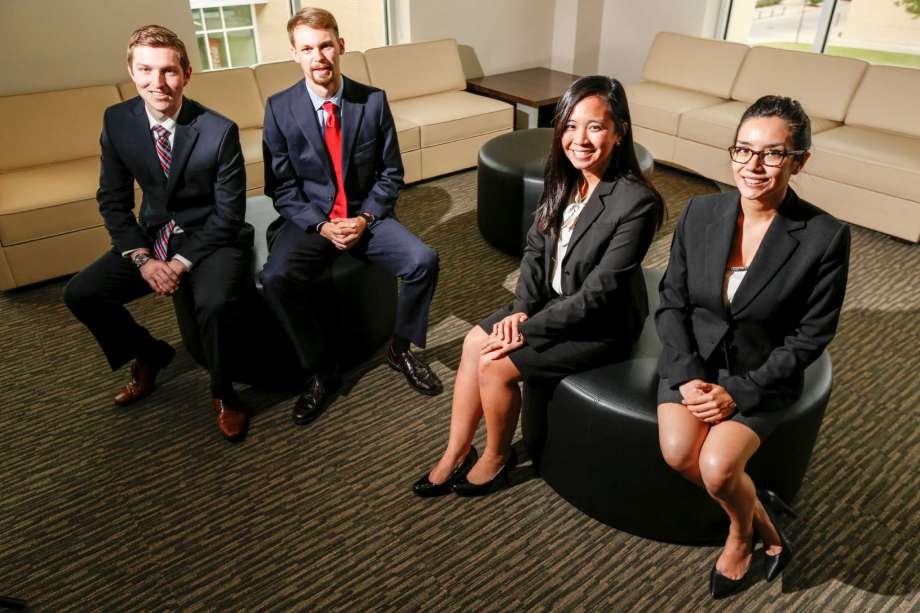By Chris Tomlinson
Houston Chronicle
WWR Article Summary (tl;dr) A company that was launched by students at the University of Houston 2 1/2 years ago is still going strong. “REECycle” is based on a technology developed in UH’s chemistry department.
Houston Chronicle
This Cinderella story has legs and life lessons for young entrepreneurs to boot.
Almost 2 1/2 years ago, I wrote about four undergraduates studying business at the University of Houston. As part of their coursework at the Wolff Center for Entrepreneurship, they had to develop a business plan based on a technology invented by UH researchers and then pitch it in competitions for cash and prizes.
One team, named REECycle after a proprietary method for rare earth element recycling, went all the way to the Department of Energy’s National Clean Energy Business Plan Competition. The team swept all three categories and defeated graduate students from MIT, Georgia Tech and Michigan State.
That student business plan is now a real company, with two of the four students at the helm. REECycle won a $750,000 National Science Foundation grant on Nov. 7 to commercialize the technology, and it has the potential to collect another $500,000 in matching funds if it succeeds. That’s on top of the $400,000 the team won in competition or received in earlier grants.
REECycle is an example of what a quality university can accomplish, and the power of competition and entrepreneurship.
CEO Casey McNeil says the team always treated REECycle like a business they’d like to start, even if it seemed like a long shot.
“We never saw it as a device for competitions, which I think helped us win the competitions,” McNeil, 26, told me at his office in the UH Innovation Center, a business incubator. “It wasn’t until we went up against MBA teams from Harvard and won in front of investors and business owners that we felt we were on to something. … It was also a push for the technical team.”
REECycle is based on a technology developed by Allan Jacobson and Pradeep Samarasekere in UH’s chemistry department. They’ve developed a method of using chemicals to extract rare earth elements from magnets recycled from computer hard drives.
As the company name suggests, rare earth elements like neodymium are hard to come by, and 90 percent of them are mined in China. The business team calculated that demand for rare earth elements is likely to grow with the spread of technology and that recycling computer magnets could supply 20 percent of the U.S. market.
“Rare earths in the United States are going to be a very large opportunity,” McNeil said.
Jim Kane, a UH lecturer who guides student projects at the Wolff Center, said China’s dominance of the rare earth market is why he sees a market for recycled materials.
“China said, ‘You want our rare earths for your magnets? Then you have to buy our magnets.’ Then they said, ‘You want our magnets for your motors? Then you have to buy our motors,’ ” Kane said. “Now they say, ‘You want our motors for your refrigerators? Then you have to buy our refrigerators.'”
“What happens when you can reverse all of that?”
Taking a chemical process from the lab and turning it into a business, though, was far more challenging than McNeil expected, consuming the last 30 months. One teammate left to pursue a career elsewhere after he graduated; another left not long ago but retains an ownership interest. McNeil, Samarasekere and Susan Tran remain.
“Some nights we walk out of this room thinking there is no way in hell this works out,” McNeil said. “And then we come back as entrepreneurs. We rerun the numbers, we recalculate it, we pivot some, and all of the sudden you’ve got this great business model.”
REECycle has not accepted outside funding, relying solely on money from competitions and grants. Without angel investors or venture capitalists demanding a quick turnaround, the team has had time to build a sustainable company that can produce a rare earth concentrate that alloy manufacturers have agreed to buy.
“You can convince people to raise a bunch of money, and some would look at that and say that’s successful because of the amount of money that they’ve raised,” he added. “But companies aren’t successful just because they’ve raised money. I think what’s been surprising me is how much effort, time and work that goes into creating an actual sustainable company.”
To pay the bills, McNeil has run another company he started while still a student called Vendera, which repairs, manages and recycles mobile devices for large companies. Tran also has a day job. The University of Houston has licensed the technology and retains a 10 percent interest.
REECycle, has hit a turning point, now hiring its first four employees to operate a new chemical reactor on the UH campus that will soon produce rare earths concentrate on a commercial scale. That will generate the company’s first invoices and pass an important milestone for seeking outside investment, McNeil said.
“When you sit back and look at where they started and where they are today it’s, ‘Wow, this is working,'” Kane said. “This is real job creation.”
Wow, indeed. Success for REECycle is far from assured, but for something that started out as an undergraduate class assignment, what McNeil and his team have accomplished is remarkable.
Entrepreneurship is alive and well in Houston.
___














































































































































































































































































































































































